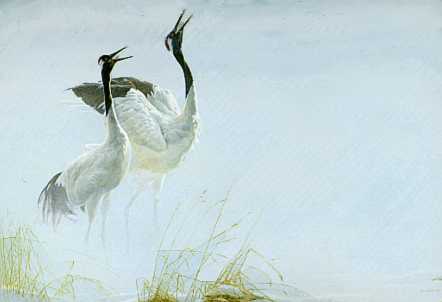|
Little
Feather, Laughing Bear
Little
Feather is an inspiration to Mountain Avenue Elementary School fourth-grader
Ashley Brines. Ashley heard the story of Little Feather at an assembly
Wednesday that taught students about Native American history and culture.
Presenter Kiyomi Ortega, who uses the name Running Deer in performances,
told the story of the 10-year-old boy who brought prosperity back to his
famine-torn people, against many odds.
"I'm
9, so it was kind of like I could do that too," Ashley said.
|
|
The
Game of "Peone"
"Peone"
is a highly competitive game of complex strategy, skill and calculation.
It
is played with eight players - four on each side, with an additional man
or woman to act as umpire (Koymi). The two sides are usually made up of
male or female players from different tribes or bands. The object of the
game is for one side to win all the tally sticks.
Much
betting accompanies the game among both the men and the women. The game
may be won in a short time, or it may - as frequently happens - prolong
itself through an entire night, until the early morning, with several
hundred dollars changing hands!
|


![]()

![]()
![]()



